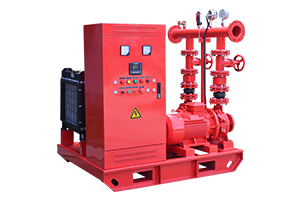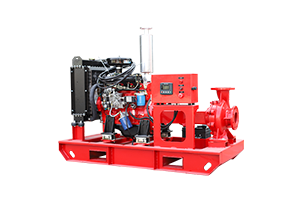How is the compatibility of fire pumps with water additives, such as antifreeze or corrosion inhibitors, ensured?
Jan 02, 2024
Share:
Ensuring the compatibility of fire pumps with water additives, such as antifreeze or corrosion inhibitors, is crucial to maintain the effectiveness and reliability of the fire protection system. Here are some key considerations to ensure compatibility:
1. **Manufacturer Recommendations:**
- Always follow the manufacturer's recommendations and guidelines for the fire pump and associated components. Manufacturers provide specific information about the types of additives that are compatible with their equipment.
2. **Listings and Approvals:**
- Check if the fire pump, as well as any additives, is listed or approved by relevant regulatory bodies such as Underwriters Laboratories (UL) or Factory Mutual (FM). Products with these listings have been tested and evaluated for compatibility and effectiveness.
3. **NFPA Standards:**
- Refer to National Fire Protection Association (NFPA) standards, particularly NFPA 20 for stationary fire pumps, and NFPA 25 for the inspection, testing, and maintenance of water-based fire protection systems. These standards may provide guidance on the use of additives and their compatibility.
4. **Testing and Documentation:**
- Conduct compatibility testing if necessary. Some manufacturers may provide documentation or conduct testing to demonstrate the compatibility of their pumps with specific additives. This information can be crucial for ensuring the reliability of the entire fire protection system.
5. **Consult with Experts:**
- Engage with qualified engineers, fire protection specialists, or consultants who have expertise in the field. They can provide valuable insights into the compatibility of fire pumps with various water additives based on their experience and knowledge.
6. **Antifreeze Concentration Limits:**
- If using antifreeze, be aware of concentration limits recommended by the manufacturer. Exceeding these limits can lead to issues such as reduced pump performance or potential damage to system components.
7. **Corrosion Compatibility:**
- Consider the corrosion compatibility of additives with pump materials and system components. Some additives may accelerate corrosion if not compatible with the materials used in the fire pump and associated equipment.
8. **Monitoring and Regular Inspections:**
- Implement a regular monitoring and inspection program for the fire protection system. This includes checking for any signs of corrosion, degradation, or changes in performance that may indicate compatibility issues with additives.
By adhering to these guidelines and thoroughly researching the compatibility of fire pumps with water additives, you can help ensure the reliability and effectiveness of your fire protection system.
.jpg)
1. **Manufacturer Recommendations:**
- Always follow the manufacturer's recommendations and guidelines for the fire pump and associated components. Manufacturers provide specific information about the types of additives that are compatible with their equipment.
2. **Listings and Approvals:**
- Check if the fire pump, as well as any additives, is listed or approved by relevant regulatory bodies such as Underwriters Laboratories (UL) or Factory Mutual (FM). Products with these listings have been tested and evaluated for compatibility and effectiveness.
3. **NFPA Standards:**
- Refer to National Fire Protection Association (NFPA) standards, particularly NFPA 20 for stationary fire pumps, and NFPA 25 for the inspection, testing, and maintenance of water-based fire protection systems. These standards may provide guidance on the use of additives and their compatibility.
4. **Testing and Documentation:**
- Conduct compatibility testing if necessary. Some manufacturers may provide documentation or conduct testing to demonstrate the compatibility of their pumps with specific additives. This information can be crucial for ensuring the reliability of the entire fire protection system.
5. **Consult with Experts:**
- Engage with qualified engineers, fire protection specialists, or consultants who have expertise in the field. They can provide valuable insights into the compatibility of fire pumps with various water additives based on their experience and knowledge.
6. **Antifreeze Concentration Limits:**
- If using antifreeze, be aware of concentration limits recommended by the manufacturer. Exceeding these limits can lead to issues such as reduced pump performance or potential damage to system components.
7. **Corrosion Compatibility:**
- Consider the corrosion compatibility of additives with pump materials and system components. Some additives may accelerate corrosion if not compatible with the materials used in the fire pump and associated equipment.
8. **Monitoring and Regular Inspections:**
- Implement a regular monitoring and inspection program for the fire protection system. This includes checking for any signs of corrosion, degradation, or changes in performance that may indicate compatibility issues with additives.
By adhering to these guidelines and thoroughly researching the compatibility of fire pumps with water additives, you can help ensure the reliability and effectiveness of your fire protection system.
.jpg)






